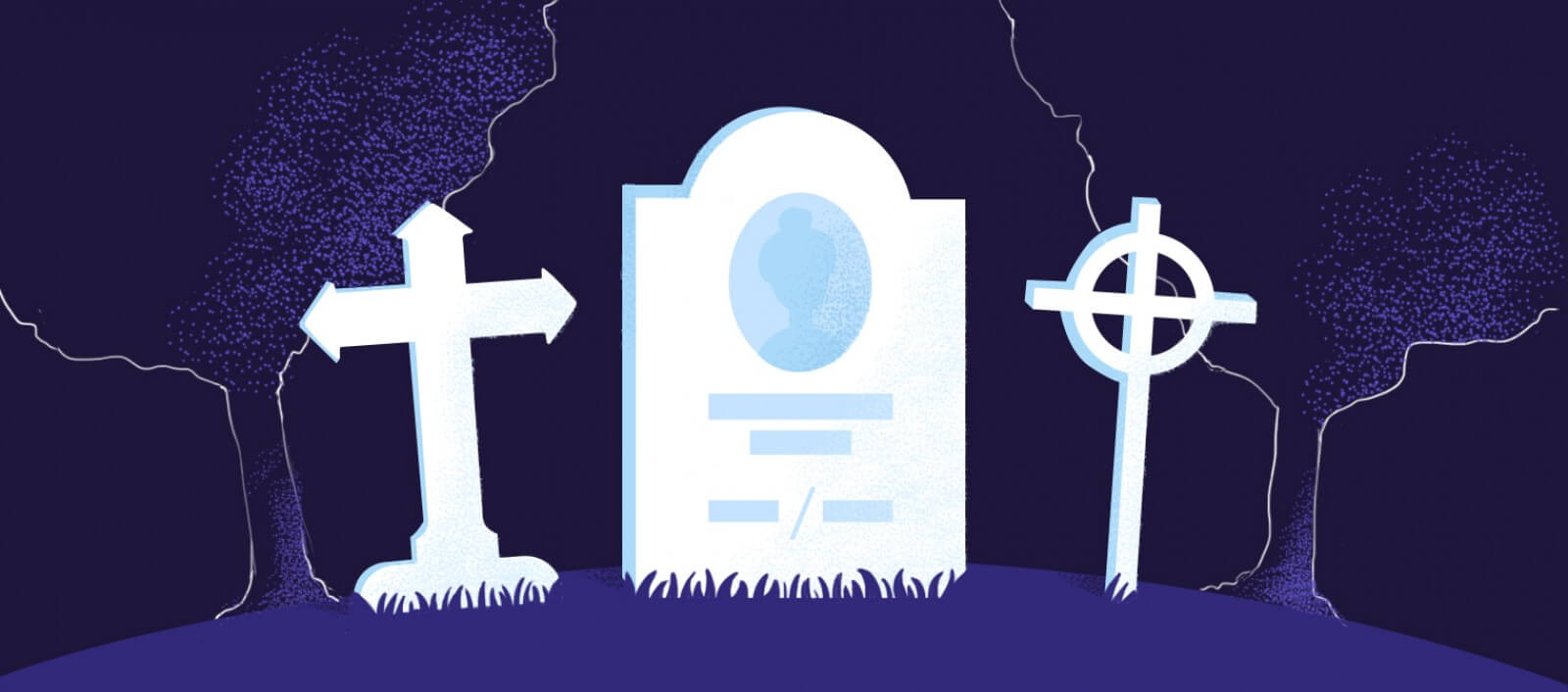
Most people fear death and we all dream, from time to time, about what it might be like to be immortal. Aging itself is a frightening concept and some dream that scientists might develop a strategy to help people live forever.
Psychological experts recognize that death anxiety can present itself in many different ways. While everyone has a fear of death on some level, some people have a severe death phobia (thanatophobia) that interferes with their ability to live their lives. Ironically, it’s their fear of dying that stops them from living! At times, this fear can occur alongside other psychiatric disorders.
Problematic vs. Normal Fear of Death
The desire to avoid death is a natural fear. It’s part of what keeps us out of situations that would be life-threatening. To this extent, a fear of death is healthy and evolutionarily advantageous.
Those that don't fear death are more likely to engage in reckless, dangerous behaviors and would soon eliminate themselves from the gene pool. The problem, therefore, isn't a fear of death. The problem is when your death anxiety becomes so strong that it stops you from being able to live your life.
What's interesting about death anxiety is how hard it is to gauge where the line between normal versus problematic lies. When is death anxiety an adaptive part of living, and when is it over-consuming and something that you need to work on?
Signs of Overwhelming Death Anxiety
Death anxiety can be considered a problem when it stops you from being able to live a normal, healthy and happy life. Here are some examples of problematic death-anxiety:
- If you experience extreme, intense anxiety in any mildly dangerous situation.
- If you avoid ordinary life events, like hiking, because of this fear.
- If you're going to the doctor too often with nothing wrong.
- If you seek out alternative and potentially dangerous ways to stay young forever.
- If you imagine ways that you might die in various situations and experience anxiety over them.
- If you have a significant preoccupation with death and avoiding death, to the point where you think about it more times than not.
- If your fear of death seems to be out of proportion to the level of danger that you face.
- If your fear of death seems to be far stronger than those of the people around you.
- If you feel that your quality of life could be hugely improved by letting go of your fear of death.
It can be tricky to identify a fear of death as being separate from other psychological disorders. For example, hypochondriasis occurs when a person develops health anxiety. Such a health anxiety is often also rooted in fear of death.
Similarly, panic attacks can also be caused by and create a fear of death. Those with panic attacks often develop a deep awareness of their own body and the way they feel. This awareness can lead to noticing any little physical change in the body, such as a little bit of an increase in heart rate, and that sensation can then trigger a full-blown panic attack where the individual feels like they're going to die, which leads to more distress.
It's for these reasons that looking at death anxiety as a phobia becomes difficult because everyone is afraid of death in some way and there are so many other issues surrounding death that the person might fear. For example, if someone isn't afraid of death, but they are afraid of dying painfully, is that a fear of death or a fear of pain?
- What if they're afraid of hearing about death and thinking about death, but they've come to terms with their own mortality?
- What if the person does have a serious illness, and they fear death because death is a very real possibility? Is this still a case of anxiety, or is it a normal and appropriate response to a very difficult situation?
- What if they're not afraid of their own death, but rather of what will happen to their family if they die?
- What if they’re constantly fearing death, but this fear isn’t irrational because they live in an environment marked by extremely high levels of violence?
There are so many questions involved when it comes to diagnosing death anxiety. The bottom line is that often, this is experience is too complex for self-diagnosis and you should really seek out the opinion of a professional.
Dealing With Death Anxiety
There are two things to keep in mind when it comes to diagnosing death anxiety. The first is that treating this type of phobia can be difficult, and often involves taking control of your overall anxiety. The second is that whether or not you have diagnosable death anxiety isn't as important as an acknowledgment to yourself that you have an issue with anxiety.
Whether it's caused by a fear of death or a fear of something else is important, but not as important as simply being willing to accept your anxiety as something you need to address. Once you take steps to do this, you’re likely to improve your overall quality of life and find yourself more fully able to live without constantly thinking about death.












